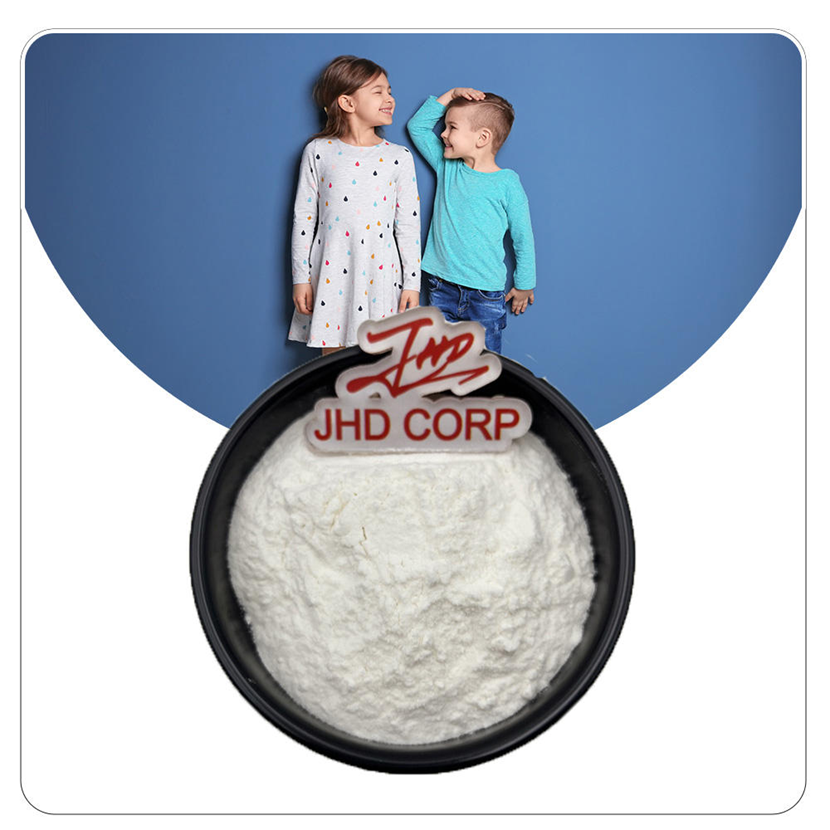Welcome to JHD Nutrasource!
Shop
L-Lysine
L-Lysine is an essential amino acid crucial for various physiological functions. As a white crystalline powder, often in the form of L-lysine hydrochloride for better solubility, it is highly soluble in water. Its structure includes an amino group and a long aliphatic side chain, enabling it to participate in numerous biochemical reactions.
Description
| Product Name | L-Lysine |
| Appearance | White Powder |
| Specification | 99% |
| Test Method | HPLC TLC |
| CAS No | 6899-6-5 |
| MF | C6H14N2O2 |
| Certificate | KOSHER/HALAL/ISO/CGMP/USDAORGANIC |
Functions
- Protein Synthesis: A fundamental building block for protein synthesis, L-Lysine is incorporated into polypeptide chains during translation. Adequate intake is essential for maintaining muscle mass, as it contributes to the growth and repair of muscle tissues. It also plays a role in the synthesis of enzymes, antibodies, and other important proteins in the body.
- Arginine Metabolism and Immune Support: L-Lysine helps regulate arginine metabolism. Arginine is involved in the production of nitric oxide, which has various functions including immune regulation and blood vessel dilation. By modulating arginine levels, L-Lysine supports immune function, promoting the activity of immune cells and enhancing the body’s defense against infections.
- Antiviral Properties: Some studies suggest that L-Lysine may have antiviral effects, particularly against herpes simplex virus (HSV). It is thought to inhibit viral replication by competing with arginine, which the virus requires for its growth and survival. This makes L-Lysine supplements popular among individuals prone to cold sores or other HSV-related conditions.
Applications
- Supplements: Commonly used in dietary supplements, L-Lysine is marketed for various purposes. It is used to support athletic performance by aiding muscle recovery, to boost immune function, and to prevent or treat cold sores. Supplements are available in different forms, including tablets, capsules, and powders, and can be taken alone or as part of multinutrient formulations.
- Food Fortification: Added to certain foods, especially cereals and baked goods, to enhance their nutritional value. In regions where diets may be deficient in essential amino acids, L-Lysine fortification helps improve overall protein quality and meet the body’s nutritional needs.
- Animal Feed: An important component of animal feed, particularly for poultry and swine. It supports growth, development, and the production of high-quality meat, making it a key ingredient in the livestock industry to improve productivity.

